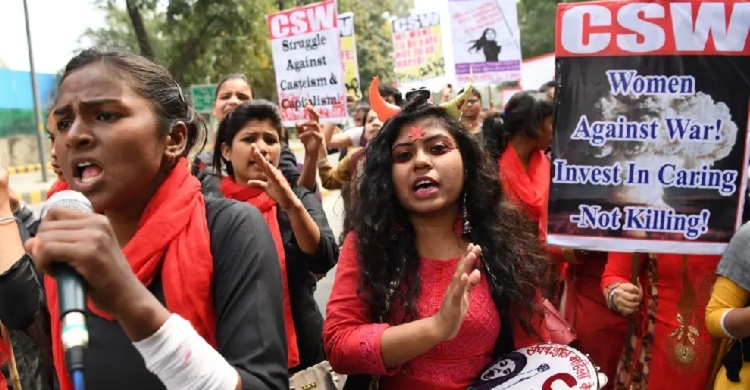Woman accused of extramarital affair paraded naked as punishment

A woman was stripped naked and paraded through a village in eastern India after a kangaroo court – comprised mostly of men – found her “guilty” of having an extra-marital affair.
The indigenous woman, who has not been named, was reportedly beaten as part of the punishment in a village in Jalpaiguri, West Bengal.
The incident itself took place lat week but is only being widely reported now after a disturbing video of the beating went viral on social media over the weekend.
Criminal cases have now been opened against six people, according to the Times of India, though the woman named more as having been involved. Three of them, identified as Bhabesh Kujur, Dipon Toppo and Sujit Lakra, have been arrested and were produced at court on Monday. The judge ordered they be remanded in police custody for the next 12 days.
Local media reported that the woman had been living with another man for the past six months, but that she recently moved back to be with her husband, who has not been named. The couple have three children.
But when neighbours discovered this in their village of Paschim Chengmari, which has a population a little over 3,000, they assembled the kangaroo court and decided to punish the returning wife.
After the incident, the woman fled the village. She was eventually found by police at her parents’ home in the neighbouring state of Assam on Sunday.
According to the latest figures from the National Crime Records Bureau, offences against members of legally protected – known as “scheduled” – castes and tribes in India rose by 7 per cent and 26 per cent respectively in 2019.
Meanwhile, a report by the Parliamentary Standing Committee on Home Affairs on atrocities and crimes against women and children stated in March that there has been an increase of 15.55 per cent in crimes reported against women and children from scheduled caste and scheduled tribes between 2017 to 2019. During the same period, the conviction rate under the Prevention of Atrocities (PoA) Act was just 26.86 per cent.
Source: The Independent, UK



